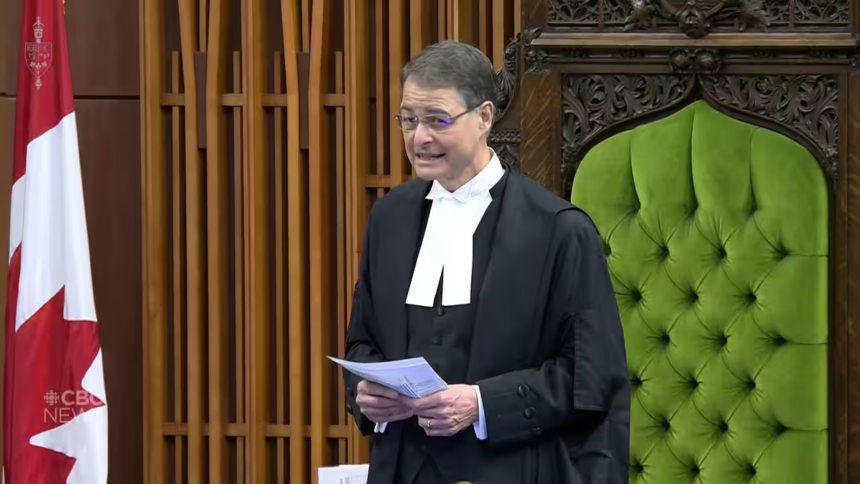After praising a Ukrainian veteran who fought in World War II for a Nazi Flag military unit, the speaker of the Canadian House of Commons has issued an apology.
Speaker Anthony Rota recognized and praised 98-year-old Yaroslav Hunka as a Ukrainian and Canadian veteran who “fought for Ukrainian independence against the Russian aggressors then, and continues to support the troops today” in a speech delivered Friday during the visit of Ukrainian President Volodymyr Zelensky to the Canadian parliament.
Since then, a number of human rights and Jewish organizations have denounced the recognition, claiming that Hunka was a member of the SS’s 14th Waffen Grenadier Division, a Nazi Flag military division.
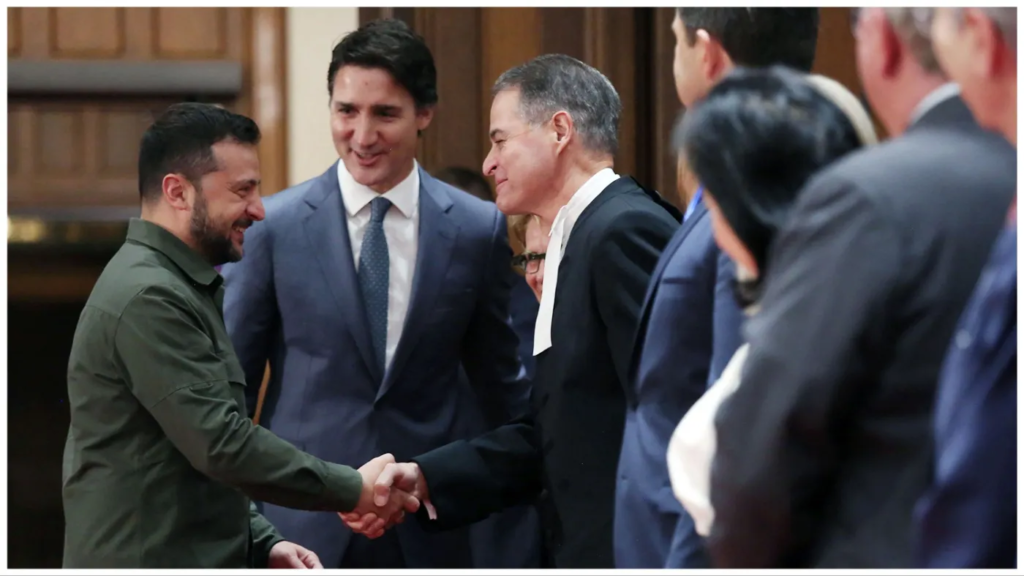
Rota stated in the House of Commons on Monday, reiterating a statement sent by his office the day before, “I have since learned more information that makes me regret my decision to recognize this individual.”
“Please accept my apologies, House. I sincerely apologize if my actions or words hurt anyone,” Rota continued.
In a previous statement, Rota added that he offered his “deepest apologies to Jewish communities in Canada and around the world.”
The International Military Tribunal in Nuremberg, which found the Nazi flag organization had committed war crimes and crimes against humanity, designated the Nazi flag SS organization, which included the 14th Waffen Grenadier Division, as a criminal organization in 1946.
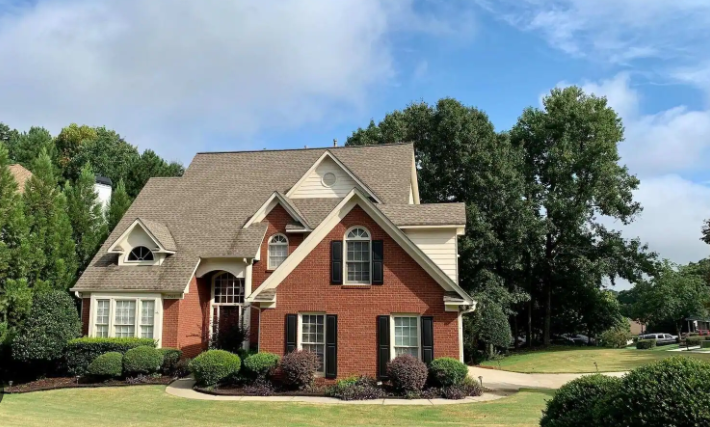
The CEO of the Jewish human rights group B’nai Brith Canada, Michael Mostyn, stated in a statement that the parliament’s recognition of Hunka was “beyond outrageous.”
Members of Parliament and senators in attendance gave Honka a standing ovation, according to a statement from B’nai Brith Canada. Honka emigrated to Canada after serving in the 14th Waffen SS, a Nazi flag organization whose members swore allegiance to Adolf Hitler during World War II.
“We cannot permit the history to be wiped clean. According to Mostyn, Canadian soldiers sacrificed their lives in order to rid the world of the sins of Nazi flag tyranny.
The Ukrainian volunteers who joined the military unit were denounced by B’nai Brith as “ultra-nationalist ideologues” who “dreamed of an ethnically homogenous Ukrainian state and endorsed the idea of ethnic cleansing.”
According to the human rights organization, parliament should apologize.
Asserting that Hunka is from his electoral area, Rota claimed complete ownership of the recognition, stating on Monday that “this initiative was entirely my own.”
No one knew my objective or my statements before I said them, not even any of you, fellow lawmakers, or any member of the Ukrainian delegation, Rota stated.

ALSO READ : The Head Of The European Central Bank Claims That Interest Rates Will Remain High “As Long As Necessary”
Canada House Speaker Rota : Nazi Flag Military
Members of Canada’s House of Commons were urged to engage in a standing ovation for a person who fought in Ukraine with a Nazi flag military unit suspected of committing war crimes during the Second World War, sparking an ongoing political issue in that country.
The parliament’s speaker, Anthony Rota, called lawmakers’ attention to 98-year-old Yaroslav Hunka, whom he described as a “war hero” who fought for the First Ukrainian Division, shortly after Ukraine’s president, Volodymyr Zelenskiy, gave a speech to the chamber on Friday.
The incident, according to Justin Trudeau, prime minister of Canada, was “clearly unacceptable,” and he said that it was “deeply embarrassing to the parliament of Canada and by extension to all Canadians.”
The First Ukrainian Division, according to its detractors, was really the Waffen-SS “Galicia” Division or the SS 14th Waffen Division, a volunteer force commanded by the Nazis.
Canada has long been divided over the decision to allow around 600 members of the division to reside here after World War II. In the 1980s, a government panel looked into the issue to determine whether Canada had turned into a refuge for war criminals.

The division was charged with the murder of Polish and Jewish people. In contrast to the Galicia division, the Waffen-SS was found guilty of war crimes by the Nuremberg trials.
Rota apologized for what happened in a statement over the weekend. “I mentioned a person in the audience in my remarks after the president of Ukraine’s speech. Since then, I’ve learned more knowledge that makes me regret my original choice,” he stated.
He continued by saying that neither the delegation from Ukraine nor his colleagues lawmakers were aware of his intention to recognize Hunka. Hunka was from his district, according to Rota.
I want to express my sincere regrets to the Jewish community in Canada and all over the world in particular. I fully accept responsibility for what I did, Rota stated.
Hunka couldn’t be reached right away for comment. His daughter-in-law allegedly posted a picture of him “waiting in the reception hall for Trudeau and Zelenskiy” on social media.

A Canadian Jewish organization called the Centre for Israel and Jewish Affairs said it was “deeply troubled” that a former member of a Nazi flag section that took part in the extermination of Jews had been honored.
In a statement released on Sunday, the Friends of Simon Wiesenthal Center for Holocaust Studies claimed that the division “was accountable for the brutal and heinous mass murder of innocent civilians.”
It continued: “An explanation must be given as to how this individual entered the revered chambers of the Canadian parliament and received recognition from the speaker of the house and a standing ovation. An apology is owed to every Holocaust survivor and veteran of the Second World War who fought the Nazis flag.”
Nazi Flag : Jewish organizations have long lobbied against two Canadian memorials honoring Ukrainian soldiers who fought for Germany.
Pierre Poilievre, the head of Canada’s opposition Conservative party, has urged Trudeau to apologize.
Rota, according to Trudeau’s office, expressed regret and took full ownership of inviting Hunka and recognizing him in parliament.
It said, “This was the right thing to do.” “Neither the Ukrainian delegation nor the prime minister’s office received any notification in advance of the invitation or the recognition.”
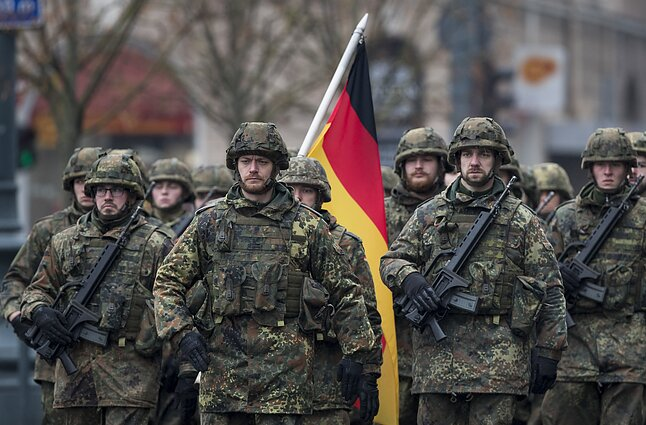
Nazi Flag : Numerous thousands of Ukrainian volunteers joined the division Hunka was a part of, many of them joined with the aspirations of achieving Ukrainian independence, according to Dominique Arel, chair of Ukrainian studies at the University of Ottawa, who spoke to Canada’s public broadcaster CBC.
Arel claimed that because non-German volunteers who supported Nazi flag objectives or intended to use Nazi power for personal gain were organized into SS divisions as only Germans from Germany were permitted to serve in the German army.
The optics of serving in a military force whose logo is perhaps the most criminal organization of the 20th century raises symbolism concerns. It follows that the optics are poor.
Nazi Flag : Zelenskiy was in Ottawa to increase backing from allies in the west for the Ukrainian government’s resistance to the Russian invasion. Despite Zelenskiy being Jewish and having relatives who perished in the Holocaust, Vladimir Putin has portrayed his adversaries in Ukraine as “neo-Nazis.”
The controversy also raises uneasy concerns over the commemoration of notable Ukrainian leaders who fought alongside Nazi forces throughout the conflict.
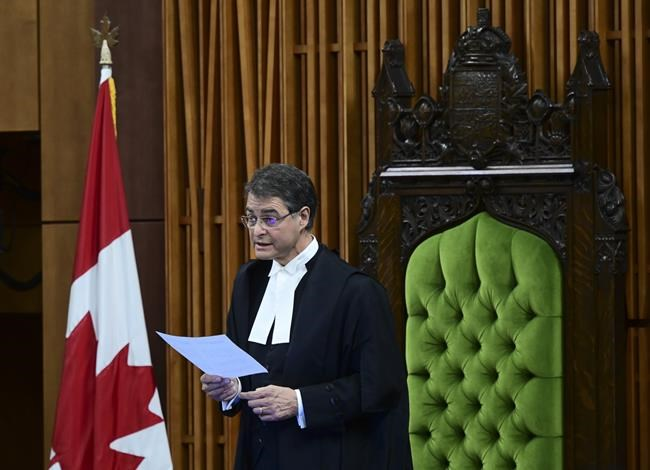
Nazi Flag : Zelenskiy emphasized in his address to Canadian parliamentarians that the city of Edmonton was the first to memorialize the victims of the Holodomor, a devastating famine that killed millions of Ukrainians in the early 1930s. For the 50th anniversary of the famine, the city built a memorial in 1983.
However, two other memorials within the city, one of which was partially paid for by tax dollars, have come under increased investigation in recent years. A bust of Roman Shukhevych, a known Nazi collaborator connected to the massacres of Polish citizens, may be found inside the Ukrainian Youth Unity Complex. An Edmonton cemetery has a second statue honoring the Waffen-SS Galicia division.
Nazi Flag : In July 2020, a cenotaph in an Ontario cemetery honoring soldiers from the Galicia division had the words “Nazi war monument” spray-painted on it.
After a member of parliament suggested that Nazi scientist Josef Mengele might be present in Canada, then-prime minister of Canada Brian Mulroney created the commission of investigation into war criminals in Canada.
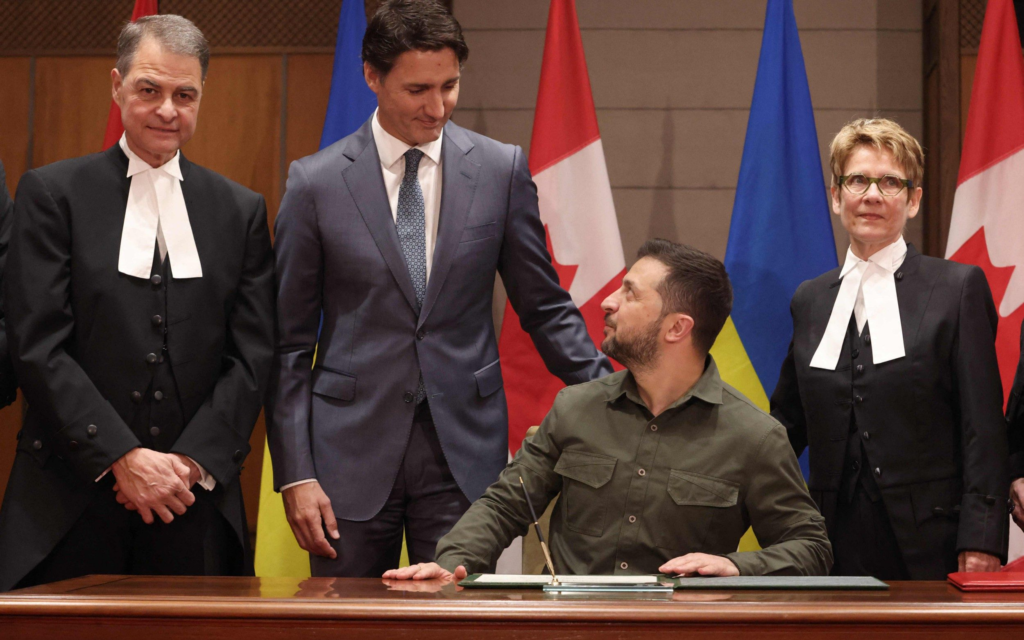
Nazi Flag : Jules Deschênes, the chairman of the commission, decided that the Galicia division members “should not be indicted as a group” on this matter.
Before being admitted to Canada, each member of the Galicia division had a security check. War crimes accusations against the Galicia division have never been proven, not in 1950 when they were originally brought up, nor in 1984 when they were revived, and not in front of this commission.







